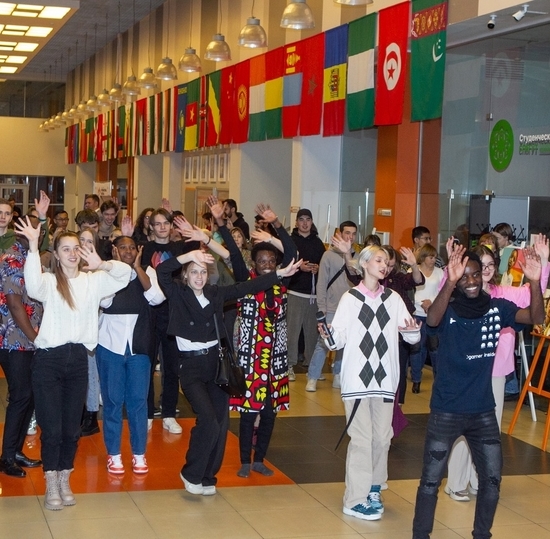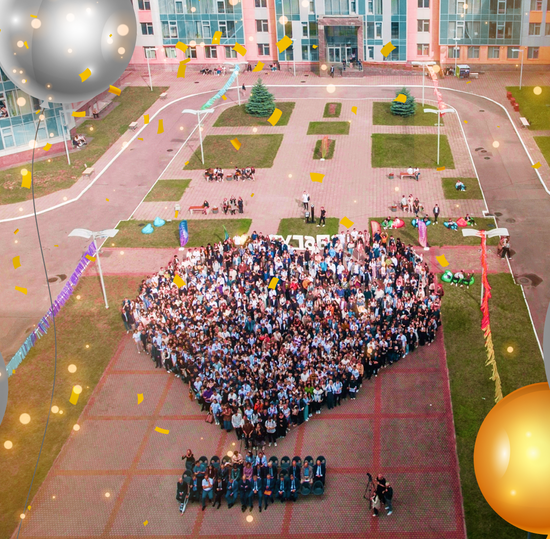How to properly prepare for vaccination against coronavirus
St. Petersburg daily updates the records for the number of vaccinated people. Thanks to this procedure, a large pool of protected people is created and the ways of transmitting the virus from person to person are interrupted.
Getting vaccinated against airborne infections, in particular, from the new coronavirus, you not only protect yourself, but also show responsibility towards your loved ones, family and colleagues, take care that the infection does not spread.
Rospotrebnadzor informs about what needs to be done before and after vaccination.
How to prepare for vaccination:
1. Will antihistamine medication (for allergies) help reduce the reaction to the vaccine before or after vaccination, avoid fever, pain and swelling at the injection site?
No, such medical "preparation" is not necessary. Moreover, it will only harm. A recent study has shown that taking antihistamines can negatively affect the immune response after vaccination. Antihistamines may be necessary for patients who have an appropriate allergic history. If they take such drugs as prescribed by a doctor on a regular basis, it is not necessary to interrupt the reception in connection with the vaccination. These drugs are not shown to all other citizens.
2. What should be done if a person still did not save himself and caught a coronavirus after the first vaccination?
In this case, the second dose of the vaccine is not administered.
3. What should people with chronic diseases (chronic gastritis, other gastrointestinal diseases, arterial hypertension, etc.) do?
People with any chronic diseases should be vaccinated first of all, since they are at an increased risk of severe complications of COVID-19, but before vaccination, it is necessary to consult with your doctor.
4. Do I need to pass any tests or undergo examinations before vaccination?
There are no such requirements. The main thing is that you feel normal on the day of vaccination. Before vaccination, the patient is examined by a doctor, measures the pressure, checks the temperature, and the condition of the mucous membranes (nose, throat) to exclude acute diseases. Taking a PCR test or a test for antibodies to the coronavirus to make sure that you have not suffered the disease asymptomatically is a personal choice of everyone.
5. Is it possible to take sedatives before vaccination, so as not to worry?
Yes, you can. Against the background of anxiety, stress, pressure can rise. Therefore, on the day of vaccination, it is recommended to check your blood pressure in the morning and, if necessary, take antihypertensive medications prescribed by your doctor.
6. If a person is allergic, is there a risk of getting a reaction to the vaccine?
If you are allergic, be sure to inform your doctor about this before vaccination. The doctor will recommend which vaccine to get vaccinated with, they have different composition.
After the vaccination, treat your health carefully:
1. Some people may have a flu-like syndrome after vaccination – the temperature will rise, etc. Not everyone can have such a reaction, but if there is one, this is normal. Symptomatic therapy is allowed – you can take antipyretics and anti-inflammatory drugs.
2. In the first three days after vaccination, intensive physical activity, a sauna are not recommended. You can take a shower in peace.
3. In the first three days after vaccination, it is recommended to limit the intake of alcohol.
4. A full-fledged immune response to the introduction of the vaccine will be formed 35-42 days, so after vaccination during this period, all precautions must be taken to avoid contracting coronavirus.
5. While immunity is being developed, it is necessary to wear a mask, observe social distance, carefully observe the rules of personal hygiene.
6. If pregnancy has occurred after vaccination or in the intervals between two vaccinations, do not worry. Vaccination does not create any additional risks and does not pose a threat to the health of unborn women and their future offspring.
7. If you have already been vaccinated, share your experience with your friends and family. Perhaps it is your example that will become an important reminder and give confidence to those who have not yet done so.
You can sign up for vaccination in one of the following ways:
-on the portal "Public services" ;
-through the service "Health of a Petersburger";
-by a single number 122;
-through the call center of the nearest polyclinic. Phone numbers are available at the link.
In August, the vaccination center will resume its work in SPbSUT. Those who want to get vaccinated need to contact the head of their structural unit, and students – to the dean's office.
Take care of your health!
 16 april
Foreign students of SPbSUT learned the history of space exploration
16 april
Foreign students of SPbSUT learned the history of space exploration
 15 april
New members of the SPbSUT International Students Community
15 april
New members of the SPbSUT International Students Community
 10 april
Lecture for Vietnamese students
10 april
Lecture for Vietnamese students
 1 april
SPbSUT and Myanmar are developing cooperation
1 april
SPbSUT and Myanmar are developing cooperation
 20 march
SPbSUT – for applicants from Kyrgyzstan
20 march
SPbSUT – for applicants from Kyrgyzstan
 15 march
SPbSUT at the World Youth Festival
15 march
SPbSUT at the World Youth Festival
 13 march
The International student club "Signal" said goodbye to winter
13 march
The International student club "Signal" said goodbye to winter
 28 february
Foreign students of SPbSUT are among the best in the creative competition
28 february
Foreign students of SPbSUT are among the best in the creative competition
 9 february
Foreign students learned about the culture of Slavic peoples
9 february
Foreign students learned about the culture of Slavic peoples
 1 february
SPbSUT is a participant of the fair of Russian higher education in Sri Lanka
1 february
SPbSUT is a participant of the fair of Russian higher education in Sri Lanka
 26 january
General Chairman of the ICACT-2024 conference welcomes the participants
26 january
General Chairman of the ICACT-2024 conference welcomes the participants
 25 january
International Student Club "Signal" held a new meeting
25 january
International Student Club "Signal" held a new meeting
 19 january
Foreign students got acquainted with St Petersburg
19 january
Foreign students got acquainted with St Petersburg
 26 december
2023 Student Victories
26 december
2023 Student Victories
 22 december
The Day of Winter at SPbSUT
22 december
The Day of Winter at SPbSUT
 22 december
From Algeria to Russia: Friendship Day was held at SPbSUT
22 december
From Algeria to Russia: Friendship Day was held at SPbSUT
 27 november
Foreign students of Preparatory Course get acquainted with SPbSUT and St Petersburg
27 november
Foreign students of Preparatory Course get acquainted with SPbSUT and St Petersburg
 15 november
International Festival of National Cultures
15 november
International Festival of National Cultures
 23 october
The best foreign students were awarded at SPbSUT
23 october
The best foreign students were awarded at SPbSUT
 13 october
SPbSUT – 93! Congratulations from Rector Ruslan Kirichek
13 october
SPbSUT – 93! Congratulations from Rector Ruslan Kirichek




